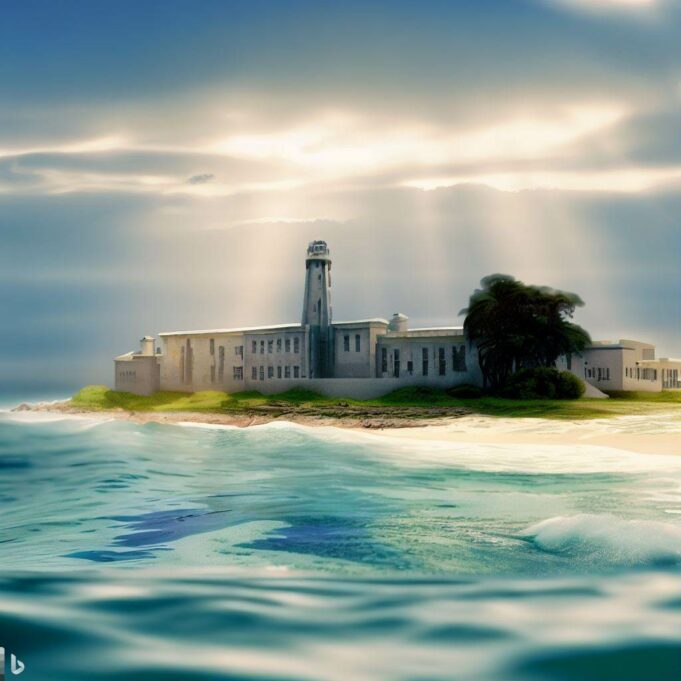Robben Island, a small rocky outcrop off the coast of Cape Town, South Africa, is a place steeped in history, both dark and triumphant. Once a site of imprisonment for political prisoners, Robben Island later became a symbol of hope and reconciliation during South Africa’s tumultuous past. In this blog post, we will delve into the captivating history and details of Robben Island, uncovering the stories of resilience, bravery, and the pursuit of freedom that have shaped its significance in South Africa and the world.
- A Haunting Past: The Early Years of Captivity The history of Robben Island dates back to the 17th century when it was first used as a place of exile for those deemed a threat to the Dutch colonial authorities. Over the centuries, the island evolved into a dreaded prison, housing various categories of inmates, including lepers, rebellious slaves, and political prisoners. Its desolate landscape and harsh conditions made Robben Island a symbol of oppression and suffering.
- The Apartheid Era: A Prison for Political Dissidents The most infamous chapter in Robben Island’s history unfolded during the apartheid era when it served as a maximum-security prison for anti-apartheid activists. Prominent figures like Nelson Mandela, Walter Sisulu, and Ahmed Kathrada were among the many brave souls who endured years of incarceration on the island. Despite their confinement, the spirit of resistance and the quest for justice thrived behind those prison walls, igniting a fire of change that would transform South Africa.
- Triumph of the Human Spirit: The Robben Island Museum With the end of apartheid in the early 1990s, Robben Island underwent a profound transformation. In 1996, the island was declared a UNESCO World Heritage Site, recognizing its historical significance and the need for its preservation. Today, Robben Island stands as a living museum, offering visitors an opportunity to bear witness to the stories of its past and honor the indomitable human spirit that defied injustice.
- Unforgettable Tours: A Journey into History Visiting Robben Island is a profound and emotionally charged experience. The guided tours, led by former political prisoners themselves, provide an intimate insight into the conditions endured by those who fought for freedom and equality. Visitors can explore the prison cells, view Nelson Mandela’s former cell, and walk the very corridors where history was made. The tour also includes a visit to the limestone quarry, where prisoners worked under the scorching sun as a form of hard labor.
- The Mandela Legacy: An Island of Reconciliation Robben Island is inexorably tied to the legacy of Nelson Mandela, South Africa’s first democratically elected president. His time on the island, spanning 18 years, became a testament to the resilience of the human spirit and the power of forgiveness. The iconic image of Mandela walking out of the prison gates in 1990 marked the beginning of a new era of hope and reconciliation in South Africa, forever entwining his name with the island’s history.
- Beyond Imprisonment: The Natural Beauty of Robben Island Robben Island is not just a site of historical importance; it is also a sanctuary for wildlife and a testament to the restorative powers of nature. The island is home to numerous seabird species, including African penguins and seagulls, while its surrounding waters teem with marine life. A visit to Robben Island offers not only an insight into human struggles but also a chance to appreciate the resilience of the island’s natural environment.
Robben Island stands as a poignant reminder of South Africa’s tumultuous past—a history marred by oppression and resistance. Yet, it is also a testament to the indomitable spirit of humanity, the triumph of resilience, and the pursuit of justice and reconciliation. As visitors set foot on this hallowed ground, they are invited to bear witness to the stories that shaped the nation’s history and the courageous souls who refused to be silenced. Robben Island serves as a beacon of hope, reminding us of the power of forgiveness and the enduring spirit that can overcome the darkest of times. Let us honor the legacy of those who fought for freedom and reflect on the lessons that Robben Island teaches us about humanity’s capacity for change, compassion, and reconciliation.







